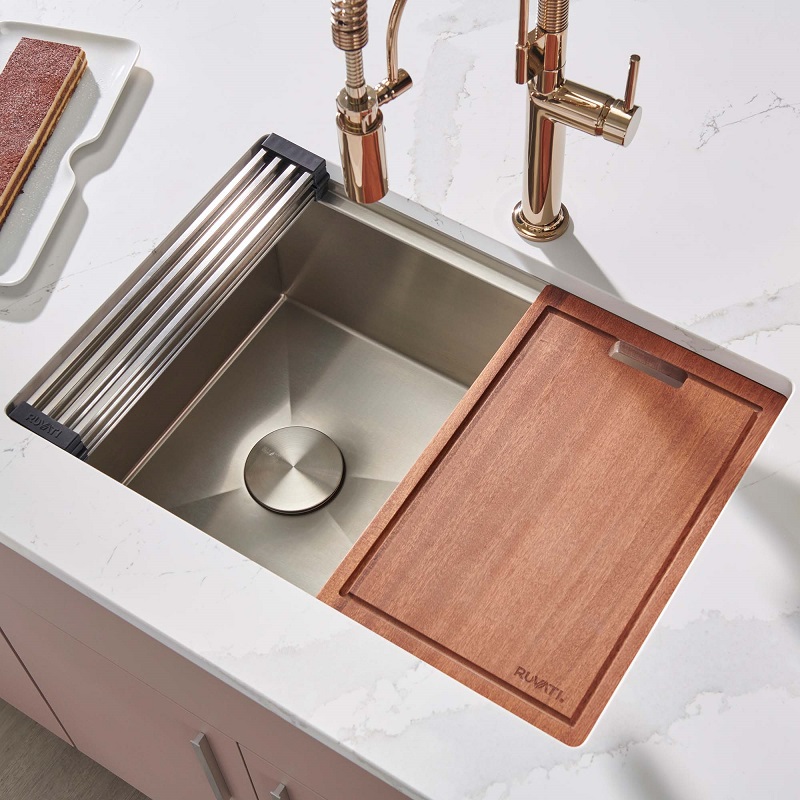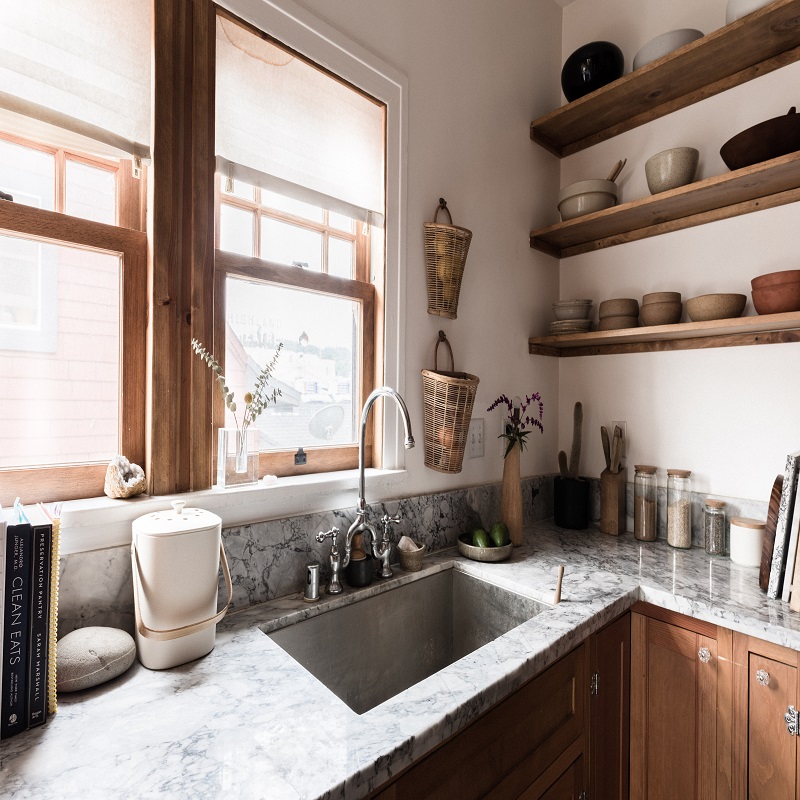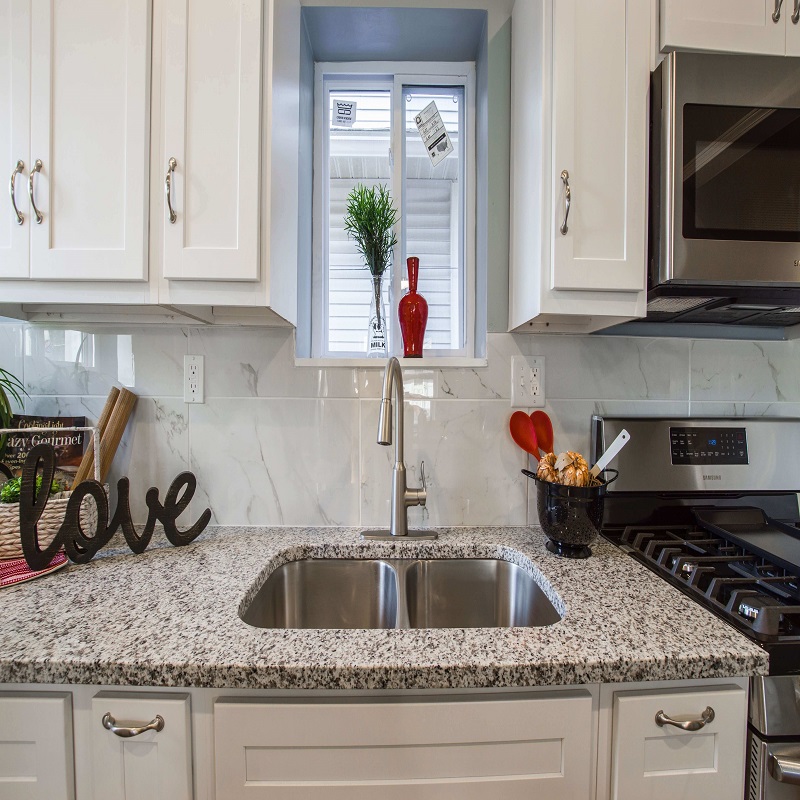A slow draining kitchen sink can be one of the most annoying and frustrating problems in a household. It not only causes inconvenience but also can lead to more serious issues if left unattended. There are several reasons why a kitchen sink may be draining slowly, and understanding these causes can help homeowners troubleshoot and fix the problem. In this article, we will explore the various reasons for a slow-draining kitchen sink and discuss potential solutions to address the issue.

Clogged Drain
One of the most common reasons for a slow-draining kitchen sink is a clogged drain. Over time, debris such as food particles, grease, and soap scum can accumulate in the drain pipes, causing a blockage that restricts the flow of water. This can lead to a slow drain or even a complete backup of water in the sink. When the drain is clogged, water has difficulty passing through, resulting in a slow drainage process.
Faulty Garbage Disposal
Another possible cause of a slow-draining kitchen sink is a faulty garbage disposal. If the garbage disposal unit is not functioning properly, it can impede the flow of water down the drain. This can occur due to mechanical issues, such as a malfunctioning motor or blades, or a buildup of food waste that obstructs the disposal unit. When the garbage disposal is not working as it should, it can contribute to a slow drain in the kitchen sink.
Improper Installation
In some cases, a slow-draining kitchen sink may be the result of improper installation. If the drain pipes, traps, or other components of the sink’s plumbing system were not installed correctly, it can lead to drainage problems. For example, if the drain pipes are not sloped at the appropriate angle, water may not flow smoothly through the system, causing a slow drain. Additionally, a poorly installed sink or strainer can also contribute to drainage issues.
Hard Water Deposits
Hard water, which is water that contains high levels of minerals such as calcium and magnesium, can leave deposits inside the drain pipes over time. These mineral deposits can accumulate and harden, leading to a buildup that restricts the flow of water through the pipes. As a result, the sink may drain slowly due to the narrowed passageway caused by the mineral deposits. Addressing hard water deposits may be necessary to improve the drainage of the kitchen sink.
Pipe Corrosion
Over time, the pipes in a kitchen sink’s plumbing system can corrode and deteriorate, leading to reduced drainage capacity. Corrosion can occur due to various factors, including the acidity of the water, the materials used in the pipes, and environmental conditions. When pipes become corroded, it can result in the buildup of rust and other debris that impedes the flow of water, causing the sink to drain slowly. Identifying and addressing pipe corrosion is crucial to maintaining proper drainage in the kitchen sink.

Lack of Maintenance
Neglecting regular maintenance of the kitchen sink and its drainage system can contribute to slow drainage issues. Without proper care and upkeep, debris, grease, and other contaminants can accumulate in the pipes, leading to clogs and blockages that impede water flow. Additionally, failing to address minor issues promptly can allow the problem to worsen over time, resulting in a slow-draining kitchen sink. Regular maintenance can help prevent and address drainage problems.
Faulty Ventilation
Proper ventilation is essential for the efficient drainage of water from a kitchen sink. If the ventilation system in the plumbing is faulty or blocked, it can cause air pressure imbalances that hinder the flow of water through the drain pipes. This can result in a slow-draining sink as the water struggles to move through the system. Checking and addressing any issues with the ventilation system can help improve the drainage of the kitchen sink.
How to repair a slow draining kitchen sink
A slow draining kitchen sink can be a frustrating problem to deal with. It can make everyday tasks like washing dishes and preparing meals much more difficult and time-consuming. Fortunately, there are several simple steps you can take to resolve this issue and get your sink draining properly again.
Diagnosing the Problem
Before you can fix a slow draining kitchen sink, it’s important to diagnose the underlying issue. There are several potential causes of a slow kitchen sink sprayer, and identifying the root problem will help you determine the best course of action for resolving it. Here are a few common culprits to consider:
- Clogged Drain: The most common cause of a slow draining kitchen sink is a clog in the drain pipe. This can occur due to a buildup of food particles, grease, soap scum, or other debris.
- Blocked Vent: A blocked vent pipe can also cause a slow draining sink. The vent pipe allows air to flow through the drain system, promoting proper drainage. If the vent pipe becomes clogged or blocked, it can impede the flow of water and cause slow drainage.
- Faulty Sink Stopper: If your sink has a stopper mechanism, it’s possible that the stopper is not opening fully, which can restrict the flow of water and cause the sink to drain slowly.
- Pipe Slope Issues: In some cases, improper pipe slope or a sagging pipe can lead to drainage problems. If the pipes are not sloped correctly, water may not flow smoothly through the system, resulting in slow drainage.

2019, March
Photographer: Stephen Paul
Photographer website: https://www.stephenpaulphoto.us/
Clearing the Clog
If a clogged drain is the culprit behind your slow draining kitchen sink, clearing the clog should be your first priority. There are several methods you can use to do this, depending on the severity of the clog and your level of comfort with DIY plumbing projects.
- Plunger: A plunger can be an effective tool for clearing a minor clog in the kitchen sink. To use a plunger, fill the sink with enough water to cover the rubber part of the plunger, then place the plunger over the drain and pump it up and down forcefully to create suction. This can dislodge the clog and allow water to flow freely again.
- Drain Snake: If the clog is more stubborn, you may need to use a drain snake to break it up. A drain snake is a long, flexible tool that can be inserted into the drain to break apart and remove clogs. Follow the manufacturer’s instructions for using the drain snake, and be sure to wear gloves to protect your hands from any debris you encounter.
- Chemical Drain Cleaner: For especially tough clogs, a chemical drain cleaner can be effective at dissolving the blockage. These products typically contain powerful chemicals that can break down organic material and clear the drain. Be sure to follow the instructions on the product label carefully and take appropriate safety precautions when using chemical drain cleaners.
Conclusion
A slow-draining kitchen sink can be a frustrating issue that disrupts daily routines. And can lead to larger plumbing problems if not addressed. Understanding the various reasons for a slow drain in a kitchen sink. Such as clogged drains, faulty garbage disposal units, improper installation, hard water deposits, pipe corrosion. Lack of maintenance, and faulty ventilation, is crucial for troubleshooting and resolving the issue. By identifying the underlying cause of the slow drainage. Homeowners can take the necessary steps to address the problem and restore proper drainage in the kitchen sink.

